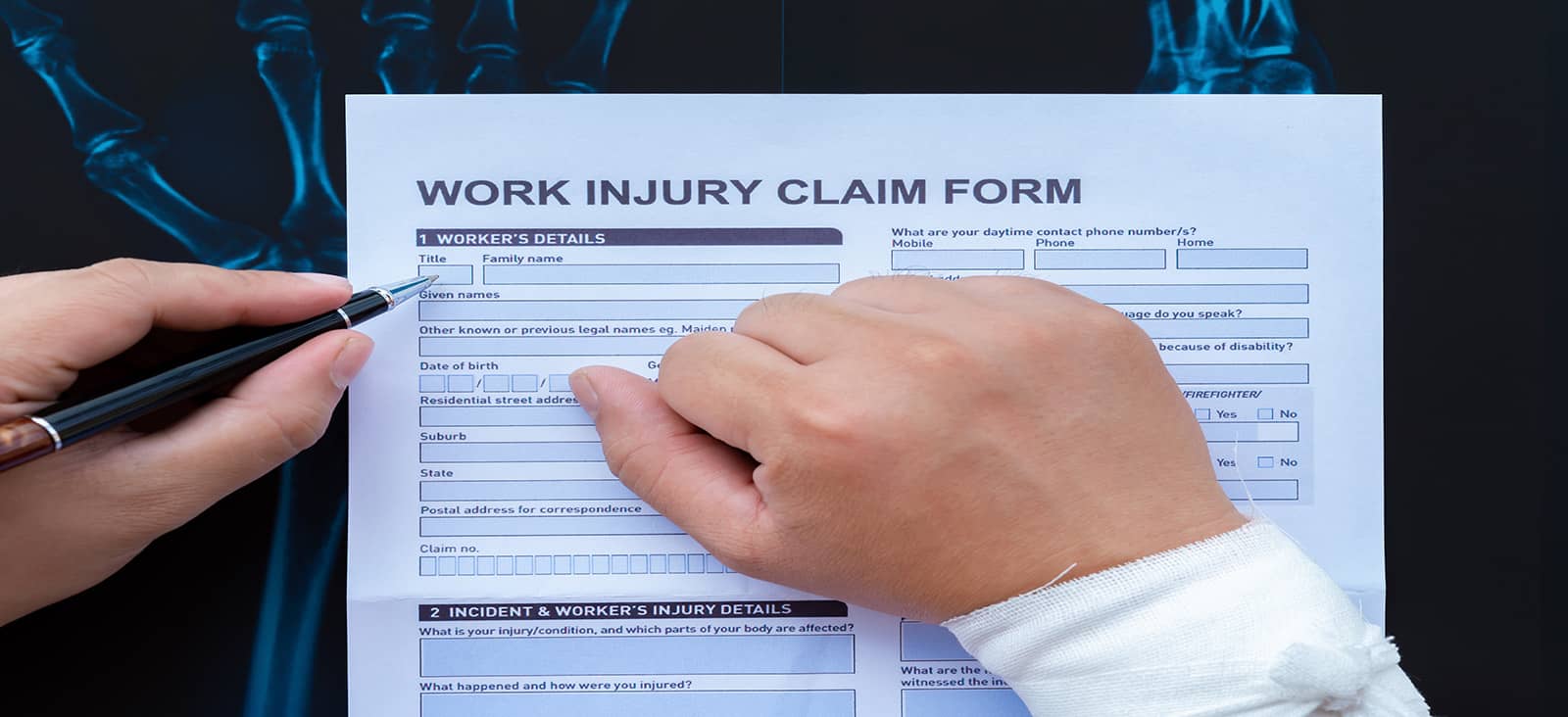The Difference Between Workers’ Compensation and FELA in Work-Related Injury Claims

Were you injured on the job? The path to compensation isn’t always straightforward, especially if you work for the railroads. While most Illinois workers are covered by state workers’ compensation laws, railroad employees fall under a different system called FELA.
At Onward Injury Law, we’ve seen how this distinction can significantly impact an injured worker’s case. In this post, we’ll break down the key differences between workers’ comp and FELA to help you understand your rights and options.
What is Workers’ Compensation?
Workers’ compensation is a state-mandated insurance program that benefits injured employees or workers who’ve become ill due to their job duties.
Illinois law requires most employers to carry workers’ compensation insurance to protect their employees.
To be eligible for benefits under the Illinois Workers’ Compensation Act, you must:
- Be an employee (not an independent contractor).
- Have suffered a work-related injury or illness.
- Meet the statutory filing deadlines.
If you qualify, you may receive benefits such as:
- Medical expenses.
- Temporary total disability (TTD) payments.
- Permanent partial disability (PPD) or permanent total disability (PTD) benefits.
- Vocational rehabilitation.
- Death benefits for surviving family members.
What is FELA?
FELA is a federal law that protects railroad workers injured on the job. It was enacted in 1908 to address the unique dangers faced by railroad employees and to provide them with a means of seeking compensation for their injuries.
Under FELA, covered railroad workers in Illinois can file a lawsuit against their employer if they prove negligence contributed to their injury.
This procedure is a key difference from the no-fault workers’ compensation system.
Differences Between Workers’ Compensation and FELA
While workers’ compensation and FELA provide important protections for injured employees, there are fundamental differences between these systems that every worker should understand.
From the types of employees covered to the standards for proving a claim, the distinctions between workers’ comp and FELA may significantly impact your ability to secure a well-deserved award.
1. Fault and negligence requirements
Illinois workers’ compensation operates on a no-fault basis, meaning injured workers can receive benefits regardless of who was at fault for the accident.
On the other hand, FELA cases require the injured railroad worker to prove the employer’s negligence caused a qualified injury under the law.
2. Coverage and eligibility
Illinois workers’ compensation covers most employees in the state, with a few exceptions, such as independent contractors and certain agricultural workers.
FELA specifically covers railroad workers engaged in interstate commerce, providing them a separate avenue for seeking compensation.
3. Compensation and damages
Illinois workers’ compensation provides specific benefits, such as medical expenses, temporary total disability payments, and permanent disability benefits, according to a set schedule.
In FELA lawsuits, injured railroad workers can seek a broader range of damages, including pain and suffering, emotional distress, and loss of future earning capacity.
4. Statute of limitations
Under 820 ILCS 305/6(d), workers’ compensation claims generally must be filed within three years of the injury date or two years from the last payment of benefits, whichever is later.
All FELA cases have a statute of limitations of three years from the date of injury, and the courts strictly enforce this time limit.
5. Settlement amounts
FELA cases often result in higher payouts due to the broader range of damages available, while a set schedule determines Illinois workers’ comp benefits.
6. Medical benefits and treatment coverage:
Both systems pay for necessary medical expenses, but FELA has specific rules and limitations for high economic damage payouts.
7. Permanent disability and return to work programs
Illinois workers’ comp offers automatic benefits for permanent disabilities and may include vocational rehabilitation, while FELA cases address these issues through jury damage awards.
8. Wrongful death claims and survivor benefits
In the event of a fatal work injury, both systems provide survivor benefits, but FELA claims require proof of employer negligence to prevail.
The FELA Claims Process in Illinois
If you’re an Illinois railroad worker injured on the job, we advise you to take the following steps to protect your rights under federal law.
- Report your injury to your employer immediately and seek medical attention.
- Secure evidence, such as witness statements, photographs of the accident scene, and medical records.
- Contact an experienced FELA attorney who can help you manage the claims process and file a lawsuit in Illinois courts if necessary.
- Authorize your personal injury law firm to build a strong case, negotiate with the railroad’s representatives, and fight for your well-deserved compensation.
Workers’ Compensation Claim Filing in Illinois
For non-railroad workers in Illinois, the process for seeking workers’ compensation benefits involves:
- Notifying your employer of your injury or illness within 45 days of the incident.
- Filing a claim with the Illinois Workers’ Compensation Commission (IWCC) using the appropriate online forms.
- Attending any required medical examinations and providing documentation of your condition.
- Working with an Illinois workers’ compensation lawyer who can help you tackle the claims process, negotiate with insurance companies, and appeal a denied claim if necessary.
Third-Party Liability in FELA and Illinois Workers’ Comp Cases
In some situations, an injured worker may have a claim against a third party (someone other than their employer) who contributed to the injury.
- For example, a negligent driver who caused a work-related car accident or a manufacturer of defective equipment that led to an on-the-job injury.
Workers’ comp claims
In Illinois workers’ compensation cases, employees can typically file a separate personal injury lawsuit against a third party while still receiving workers’ comp benefits. However, recovery from a third-party lawsuit may be subject to a lien by the workers’ comp insurer.
FELA claims
Similarly, FELA allows for third-party cross-claim lawsuits in addition to the claim against the railroad employer.
An experienced Illinois personal injury attorney can help injured workers identify potential third-party defendants and pursue these additional avenues for compensation.
Comparative Negligence and Contributory Fault in FELA Cases
A critical aspect of FELA cases that sets them apart from Illinois workers’ compensation is the concept of comparative negligence.
Under 45 USC § 53, the courts may reduce the compensation of an injured railroad worker if it finds the employee was partially at fault for the injury.
- For example, if a jury determines that the railroad worker was 20% responsible for the accident and the railroad was 80% at fault, it would reduce the worker’s damages award by 20%.
This rule differs from the no-fault nature of Illinois workers’ comp, where an employee’s negligence generally does not affect his or her ability to receive benefits.
Why Expert Witnesses in FELA and Illinois Workers’ Comp Claims Are Invaluable
Expert witnesses play an insightful role in supporting an injured worker’s case in FELA lawsuits and Illinois workers’ compensation claims.
These experts may include:
- Medical professionals who can testify about the nature and extent of the worker’s injuries and the necessary treatment
- Vocational experts who can speak to the worker’s ability to return to their previous job or find alternative employment
- Accident reconstruction specialists who can help establish how the injury occurred and the factors that contributed to it
- Economists who can calculate the long-term financial impact of the worker’s injuries, including lost wages and future medical expenses
A reputable personal injury law firm will know when and how to use expert witnesses effectively to build a compelling personal injury case.
Get Professional Help with Your Work Injury Claim
Workers’ compensation and FELA can make a world of difference when you’re already dealing with a work-related injury.
If you have been seriously hurt while working in Illinois, have our personal injury lawyers at Onward Injury Law evaluate your case and guide you through the worker’s comp or FELA claims process.
Schedule your free consultation today.



